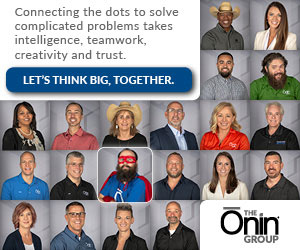Contrary to some media headlines, the performance appraisal isn’t dead and it’s not going away anytime soon. Yes, some organizations are announcing their plans to kill the performance review in favor of something else that doesn’t use the words “performance” or “appraisal.” Whatever it is called, it will perform essentially the same function. The process of giving employees regular feedback about their performance isn’t going away.
Why? Because deep down inside, we want regular feedback about our performance.
“No news is good news” just isn’t a performance management philosophy. So, it’s critical that supervisors learn how to deliver feedback. Whether you’re a first time supervisor or seasoned manager, here are 10 things to remember when it comes to employee performance reviews:
- If your company offers performance appraisal training, take it. Evaluating performance and delivering feedback are skills that you will develop over time. Since this is a skill you will need for the rest of your career, go to training. And if the company doesn’t offer training, go to Human Resources and ask for it.
- Understand the most common forms of rater bias. Some of the more common ones include leniency, recency, halo, horn and contrast. Knowing what rater bias is and how it can show up is the first step in keeping it out of the performance appraisal process.
- Compare performance to the company standard. Speaking of contrast bias, there’s a reason that organizations develop standards. It’s to measure performance. Regardless of what your supervisor may have done over the years, you should never evaluate an employee’s performance against another employee.
- Find a way to remember specific examples. When explaining performance, it’s very effective to use specific, behavior-based examples. No one expects a supervisor to remember all the details of every single employee’s behavior. Meet with Human Resources and find out the best way to keep notes regarding employee performance. There are legal considerations, so be sure to discuss this matter with HR.
- A performance appraisal should never be a surprise. Let me say that again — a conversation about an employee’s performance should not be a surprise. A supervisor should set performance expectations. They should have regular conversations about performance. The goal of performance management is to improve performance, not to shock people.
- Get employees involved in the process. As a supervisor, you get time to think and prepare an employee’s performance review. Give the employee the same opportunity. Share a copy of their previous review, encourage them to do a self-appraisal, and schedule the performance review meeting in advance so they can gather their thoughts.
- Performance feedback meeting logistics really are important. Remember to create the right atmosphere for this meeting. Choose the right room where you can have a private, frank conversation. Schedule it at the right time — not only to allow for enough time to have the meeting, but to choose the right time of day. And if something goes awry on the day of the meeting, don’t be afraid to reschedule. Just tell the employee, “Hey, today’s been really stressful for both of us. I want this conversation to happen when we’re both relaxed. Let’s reschedule it for later in the week.”
- Talk about the past but focus on the future. I understand that there needs to be a certain amount of recap in a performance appraisal meeting. But rehashing the past can feel unproductive and possibly even painful. Everyone knows what’s happened in the past. A supervisor should spend the majority of time talking about the employee’s career in the future tense.
- Ask about your performance. This is a great time to find out what you do well as a supervisor. Ask employees what you can do to support them. I recommend telling employees before the meeting that you’re going to ask this question so they can think about their answer. You’re giving them thoughtful feedback about their performance, allow them to do the same for you.
- Don’t wait a year to have the next conversation. If you only have performance conversations once a year, it’s a tougher meeting. It takes more time to prepare and schedule. Regular performance discussions are not only easier to have, but they benefit everyone involved.
While everyone understands the traditional performance appraisal needs a major revamp, that doesn’t absolve us of our responsibility to give employees regular feedback about their performance. Regardless of the system you have or the process you use, employees want and expect good feedback. And if you’re a supervisor, it’s your job to provide it.
Sharlyn Lauby
HR Bartender






